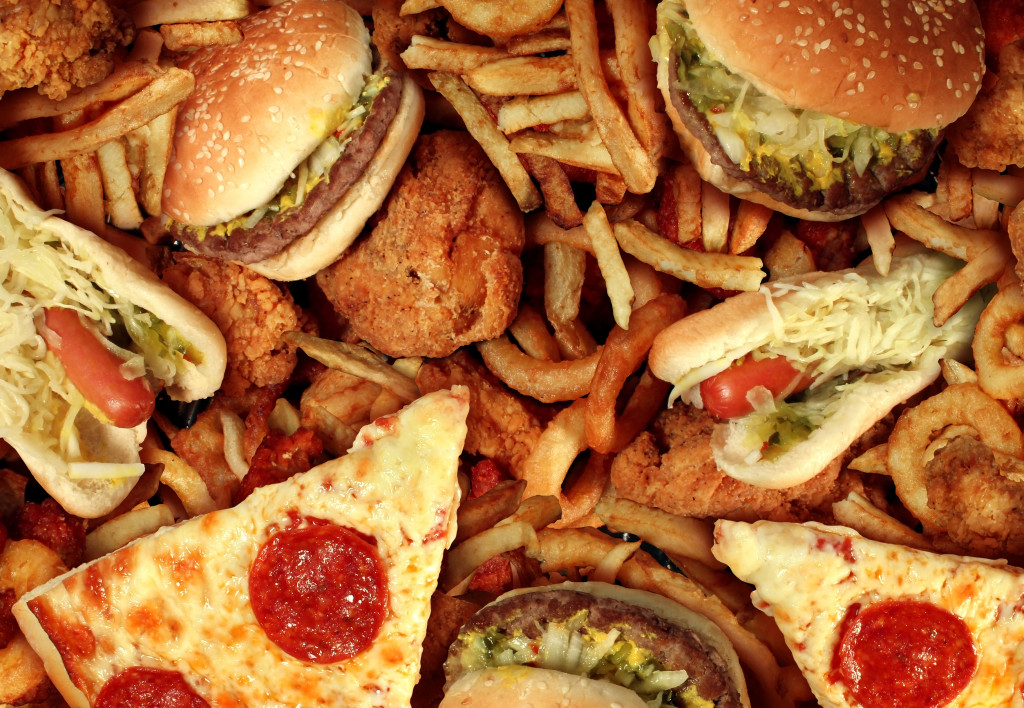It can be difficult to have a well-balanced lifestyle, especially if you’re busy and dealing with too much stress. Many people also find it difficult to maintain a healthy work-life balance while working at home. Thus, people find it hard to eat a healthy meal or make healthy snacks. Making sudden changes to your daily routine will only lead to short-term weight loss; however, that’s not helpful and will not be beneficial down the road.
If you can pinpoint which habits put your body in danger, that quickly helps you find the right solutions and get the desired outcomes. Identifying which practice to eliminate will help you replace that with healthier behavior. Use this detailed guide as a starting point for changing your lifestyle, but find the solutions that fit you. Likewise, you can also be creative. Make a customized plan you’re more comfortable with.
Not Enough Water Intake
Human bodies contain 60% water. Drinking the recommended amount of water will benefit you. Hydrating your body will help keep your motivation intact, your emotions stable, and your memory sharp. In addition, it eliminates toxins through the kidneys, allows joints and muscles to work more efficiently, cools down the body when it’s hot, and makes the skin stay healthy. Make sure to check your urine color.
That will help you determine if you’re properly hydrated. If it’s light yellow, it can indicate that you’re drinking the recommended amount of water.
Not Working Out Regularly
Exercising has numerous health benefits. Exercising regularly can help boost energy and lose excess weight, making you feel and look great. It’ll also help you find a healthier lifestyle. Exercising also regulates blood sugar; keeps you sharp; increases blood flow to your brain; keeps the heart healthy; minimizes the risks of chronic health conditions such as aggressive forms of cancer.
Include regular workouts in your new routine. You can incorporate at least two hours of moderate-intensity activities, including muscle training or brisk walking. Or one hour for a high-intensity workout that includes resistance training and running.
But don’t overextend your body. Talking to friends from your chronic disease support group or network will help you find the right training program that fits your lifestyle.
Eating Meals at the Desk
Many people tend to eat at their desks due to their busy schedules; however, you’ll get more satisfaction from enjoying your meal, allowing you to resist the pull of binge eating in the afternoon. Based on research, a person who solely focuses on their meals without distractions felt more satisfied an hour after eating. Moreover, they ate less during their mid-afternoon snacks, unlike people who worked on their desks during their meals.
Banishing a Sweet Treat

Most people assume that not eating desserts is helpful; however, studies show that depriving your body, even if you’re already consuming lots of calories, will increase the risks of overeating. Having food restrictions will also make that dish more alluring. Go with your cravings, but do it moderately. Treating yourself won’t break your diet.
Not Cleaning the Kitchen
Most people might have missed it, but the kitchen sponge has more yeast, mold, and bacteria than your bathroom sinks. Most of the bacteria found on the sponge will not cause diseases, but others can. Make it a habit to clean or replace your sponges, even if you’re already cleaning the refrigerator shelves, sinks, and kitchen counters thoroughly.
That will prevent germs from harming your family. You can put the sponge inside your microwave for at least two minutes or replace it frequently.
Using Too Much Olive Oil
Olive oil contains lots of monounsaturated fats and heart-healthy antioxidants, but there are times when it’s not the ideal choice for cooking a meal. That’s because olive oil will burn more quickly than the other brands used for cooking. Heating the oil to its smoke point will break down its beneficial compounds, potentially allowing harmful compounds to form. If you’re using high heat, use another kind of oil.
But olive oil can be the best choice for cooking vegetables on medium heat or preparing your salad dressing.
Eating Based on Labels
More and more brands claim to offer health benefits. If you base your eating habits on such claims, it doesn’t necessarily mean you’re eating a well-balanced diet. Even if the product claims to skimp on carbohydrates, gluten, or fats, that doesn’t mean it’s entirely healthy. One example is a fat-free product that claims to offer more sugar.
Don’t be tempted to buy a product because of their healthy-sounding claims. You’ll have to bear in mind that the healthiest foods from the grocery store don’t have brands or tight packaging.
If you let your bad habits take control over you, you can end up suffering from weight gain, high blood pressure, high cholesterol, and other medical conditions.

